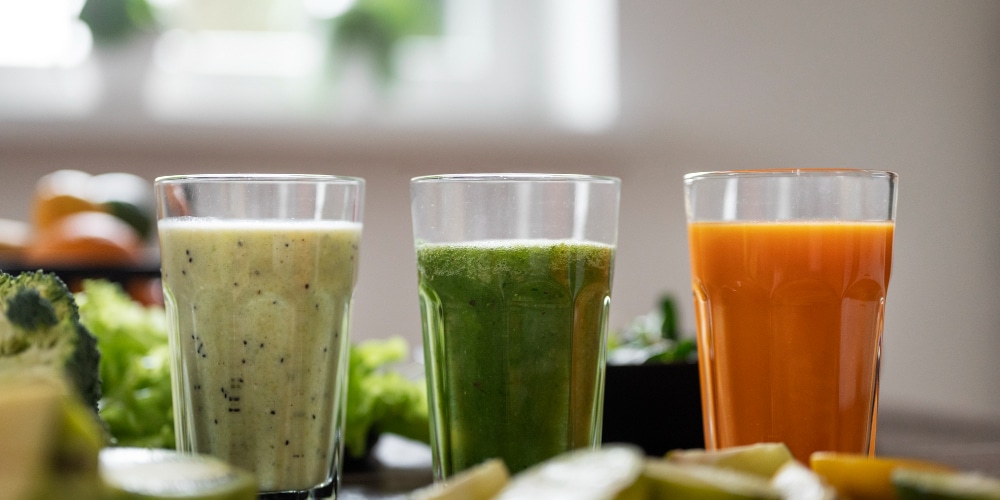Latest
World Breastfeeding Week is here, but have we checked on our mothers and the data?
Though natural, breastfeeding isn't always easy. Across India, women face cultural pressures, limited support, and unequal access to care, which all affect their ability to exclusively breastfeed their infants.
Author
Author
- admin / 3 months

- 0
- 7 min read

Author
Shadia Hassan, a PhD scholar at IIT Delhi, gave birth to her first child, a beautiful, healthy boy, in November 2024. She recalls how the early months of motherhood were a delicate balance of science, emotion, and inherited advice.
“I delivered my baby via C-section at Trident Hospital in Nehru Place, and initially, the doctors gave him formula milk,” she says. “That’s common with cesarean births—mothers are weak, dealing with stitches, spinal headaches—but once we were discharged, my doctor was clear: exclusively breastfeed your baby,” she said.
And Hassan stuck to that advice, following the recommendations given by her doctor, which is in line with what international bodies such as the World Health Organisation (WHO) and UNICEF recommend—exclusive breastfeeding for the first 6 months. This means the baby is not to be given food, formula milk or even water in those early months.
However, for many women in India, breastfeeding is a journey marked by silent struggles and systemic barriers.
Observed from August 1–7, World Breastfeeding Week highlights the vital role of breastfeeding in ensuring the health and survival of mothers and babies. The 2025 theme, “Prioritise Breastfeeding: Create Sustainable Support Systems,” urges families, workplaces, and governments to create supportive environments where women can breastfeed without stigma or difficulty.
Though natural, breastfeeding isn’t always easy. Across India, women face cultural pressures, limited support, and unequal access to care, which all affect their ability to exclusively breastfeed their infants. While recent data reflects progress, it also reveals persistent gaps that require immediate action.
Why is exclusive breastfeeding recommended for the first six months?
Since breast milk makes the infants immune to infections, it helps in healthy growth and enhances immunity. According to WHO estimates, optimal levels of breastfeeding would save more than 820,000 child deaths each year in children under five. Among the preventive measures, the exclusive breastfeeding in low- and middle-income countries has the greatest positive effects on child survival.
Dr Arvind Bountra, Head of Paediatrics at Max Hospital, explained, “Breastfeeding offers hundreds of advantages. It’s free of cost; mothers don’t need to spend money, which is especially important in third-world countries. Breast milk is naturally sterile, reducing the risk of infections. It also helps prevent obesity, as bottle-fed babies tend to be heavier. Most importantly, it provides all the macro and micronutrients a baby needs in the first six months of life.”
In fact, the very first milk produced by mothers-colostrum, is often called “liquid gold” for a reason. As per a report, colostrum contains lots of proteins, antibodies, and other nutrients that empower the immune system of a newborn baby. It is low-fat, contains high carbohydrates and is perfectly designed to protect the babies during their initial days of life. But a significant number of infants in the world are deprived of this crucial first nourishment due to delayed initiation, cultural taboos, or lack of awareness.
What are the pressures that new mothers face that hinder breastfeeding?
While there is no question about the benefits and advantages of exclusively breastfeeding your child till they ar at least 6 months of age, it is not always a smooth and easy journey for all. Hassan recalled how in those first few months, she was overwhelmed by the conflicting advice she would get from experts and elders.
“Breastfeeding itself was new and I had to get accustomed to it, though my lactation was fine. But everyone around you starts offering unsolicited advice—‘maybe the baby isn’t getting enough milk,’ ‘give formula, he’s crying too much.’ It can really shake your confidence,” she said. “I chose to trust my doctor instead. They told me my milk had sufficient nutrients, and I stuck to exclusive breastfeeding for six months.”
Hassan’s family was supportive and strongly pro-breastfeeding, but like many new mothers, she found herself caught between medical science and traditional advice. “There were all kinds of suggestions—don’t breastfeed right after a bath, drink a hot beverage first, eat desi supplements like halwa. There’s no scientific backing for most of it. But as a mother, you find yourself thinking: ‘what if?’ So sometimes you just follow the advice for your own peace of mind,” she said.
She admitted that the pressure can build up, especially when the baby cries or experiences colic. “People assume it’s because the baby isn’t getting enough milk. That’s when doubts creep in- ‘maybe I’m not producing enough.’ It’s very stressful.”
The emotional toll, she added, is also often overlooked. “I think I experienced postpartum depression during the first three months. It’s a hard time for any mother. I was lucky—my husband was incredibly supportive, and that made a big difference. I’m glad that pressure phase has passed.”
Sometimes, first time mothers also face challenges with milk supply and latching issues, which also deter exclusive breastfeeding, as shared by Sarah Raza who gave birth to her son in April 2023 at Fortis Hospital, Noida. At the time, she found herself overwhelmed, not just by the emotions of new motherhood, but by the unexpected hurdles of breastfeeding.
“I had a C-section, and initially my body didn’t give the signal to start producing milk,” she recalled. “For about a week, my baby was fed powdered milk. I had so many questions- why wasn’t I lactating? Was something wrong with me?,” she shared.
However, doctors encouraged her to keep latching, reassuring her that lactation would soon begin. And it did. Within a few days of giving birth, she started breastfeeding and has continued ever since. “My baby was smart, he could tell the difference between formula and breast milk,” she laughed. “He rejected the powdered milk completely.”
But it was not an easy journey for Raza. Those early days, she recalled, were a blur of exhaustion, confusion, and conflicting advice. “Formula milk helped me in the beginning when I was drained, but my mother was firm: ‘Don’t make this his habit,’ she’d say. Looking back, I realise how much of this knowledge is generational, passed down without question. But now, more mothers are turning to doctors and trusted medical advice.”
Despite the challenges and pressures, Hassan and Raza were able to breastfeed their children in those crucial initial months, because of benefits like paid maternity leave and hybrid work models. Hassan received six months of paid maternity leave, while Raza’s office also allowed her an additional year and a half of work-from-home after her maternity leave.
How does India perform when it comes to exclusive breastfeeding?
India has been faring better than global standards when it comes to exclusive breastfeeding rates. In 2024, globally, about 48% of children under 6 months of age were exclusively breastfed. The National Family Health Survey-5 (NFHS-5) conducted between 2019–2021, however, showed that in India the rate is 63.7%. This is much closer to the global target of 70% by 2030.
However, early initiation of breastfeeding (within 1 hour of birth) remained stagnant at 41.8% in India, barely up from 41% in NFHS-4. This is also significantly lower than the global rate of 48% that was recorded in 2024.
Cultural norms also mean that prelacteal feeding—the practice of giving substances like honey or jaggery before initiating breast milk—declined from 20% to 16%, but still remains prevalent in many states.
Data from NFHS-5 (2019–21) reveal a significant difference in breastfeeding practices between rural and urban India. The median duration of any breastfeeding is notably longer in rural areas, averaging 33.5 months, while in urban settings, it drops to 25.8 months. Similarly, exclusive breastfeeding—a practice of feeding infants only breastmilk for the first six months—lasts 4.0 months in rural India compared to just 3.5 months in urban areas.
“Well-educated mothers today are aware of the benefits of breastfeeding. However, concerns about breast shape and size still come up. A bigger issue is the aggressive push by pharmaceutical companies promoting breast milk substitutes. If a parent regularly opts for top feeds, it can cost around ₹5,000 to ₹6,000 a month. Fortunately, the government is resisting this push,” Dr Bountra explained.
Also read: World Breastfeeding Week: 820,000 children can be saved each year
(Do you have a health-related claim that you would like us to fact-check? Send it to us, and we will fact-check it for you! You can send it on WhatsApp at +91-9311223141, mail us at hello@firstcheck.in, or click here to submit it online.










